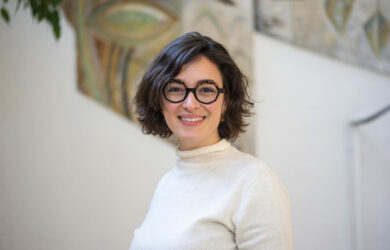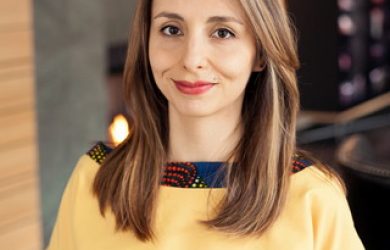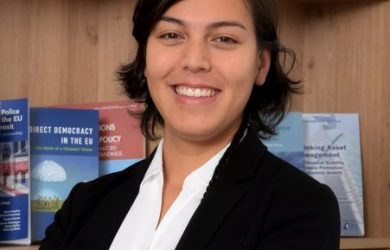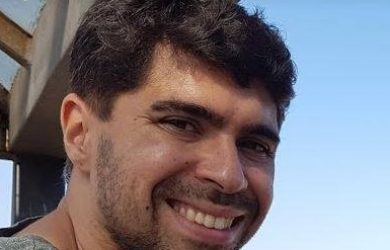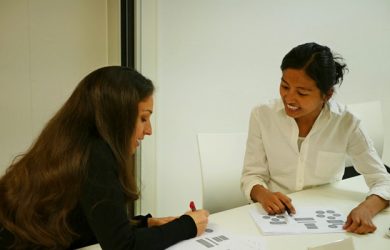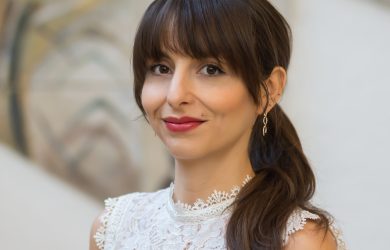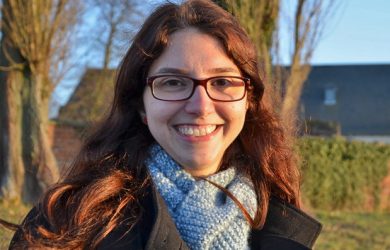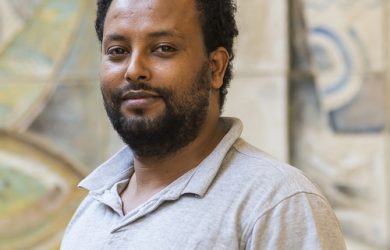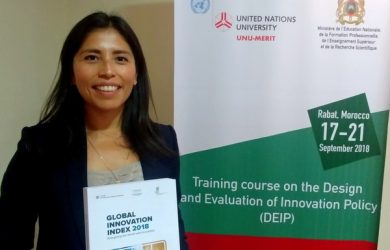- ABOUT US
- RESEARCH
- EDUCATION
- The Graduate School
- PhD Programme
- MSc Programmes
- Capacity Development
- News
- Design and Evaluation of Public Policies (DEPP)
- Design and Evaluation of Innovation Policies (DEIP)
- Evidence-Based Policy Research Methods (EPRM)
- Migration Management Diploma Programme (MMDP)
- Moving the Migration Policy Agenda Forward (MMPAF)
- Online Courses
- Short Courses (Masters)
- Tailor-made programmes
- UNU-MERIT, ITU Academy Training Centre
- Alumni
- Academic Funding
- NEWS
- EVENTS
- PUBLICATIONS
- LIBRARY
“We want to do research that matters,” say new part-time PhD fellows
07 April 2022
Our ‘Dual Focus PhD’ series tracks the working lives of our part-time PhD fellows. Many work at the highest of levels, both nationally and internationally — and in normal times they come to Maastricht in person for our unique PhD Dual Career Training Programme in Governance and Policy Analysis (GPAC²). This time, our Head of Communications, spoke with Rodrigo Lopez and Giovanna Mazzeo Ortolani who just started their PhD. Diego: Giovanna and Rodrigo, welcome to UNU-MERIT! Could you tell me a lit...
Continue Reading →PhD fellow tops World Bank call to visualise development impact
16 April 2021
The World Bank launched its Development Impact blog on 1 April 2011, and has since published exactly 1500 posts. To celebrate turning 10, the editors of the blog decided to replace its meteor logo with something that better captures the aim of development research: i.e. to inform on the range of potential outcomes and choices in policy design and development processes. Responding to a call for artistic ideas, our Bolivian-Italian PhD fellow Mariajose Silva-Vargas sent in the image above, which w...
Continue Reading →Making the labour market more inclusive for refugees: New $100k research project
18 May 2020
PhD fellow Mariajose Silva-Vargas from UNU-MERIT and graduate student Francesco Loiacono from the Institute for International Economic Studies have been awarded two grants — from the Peace & Recovery Competitive Fund from Innovations for Poverty Action (IPA) and the Private Enterprise Development in Low Income Countries (PEDL) research initiative — for a total of US$ 100,000 to study labour market integration of refugees in developing countries. Refugees and access to labour mark...
Continue Reading →Master’s alumni: Building careers while digging the data
12 December 2019
During our Master’s Open Day, we welcome prospective students and give them a general overview of the programme and its seven specialisations. We also invite alumni back to share how the programme prepared them to kick-start their careers in international development. On our Open Day in November 2019, I caught up with four alumni from different cohorts who reflected on the programme and their careers. Welcome back — thank you for taking the time to visit us! Let’s first have a brief ...
Continue Reading →Our nurturing environment helps our global rankings: Danilo Sartorello Spinola
28 November 2019
I previously worked at the UN ECLAC in Santiago de Chile, in a division that has partnered with UNU-MERIT on various projects. For two years I worked under Mario Cimoli, who used to be a colleague of UNU-MERIT Director, Bart Verspagen. It was Mario who first told me about the programme. Then Alejandro Lavopa, a PhD fellow at UNU-MERIT at the time, visited ECLAC and suggested that I apply for the PhD programme. So I learned about it by word of mouth....
Continue Reading →Research speed dating: Breaking the ice to build capacity & networks
21 March 2019
Teaching research methodology to our new PhD fellows is my favourite class. Doing so in small groups, as is often the case in our PhD programmes and professional training, allows me to engage in creative and innovative educational formats. It’s also much appreciated when teaching mid-career professionals, who are not used to sitting in class and listening for hours. Every time I teach, I try a new set-up or tweak things a little. But of course, some formats have proven their value over tim...
Continue Reading →Research grants are fuelling my fieldwork: Mariajose Silva Vargas
12 March 2019
My co-author Francesco Loiacono and I won an exploratory grant from Innovations for Poverty Action (IPA) last year, and a small grant from the International Growth Centre (IGC) this year. The first allowed us to travel to Uganda and organise focus group discussions with refugees, firms and other stakeholders. This initial qualitative work helped us in developing and refining our idea. Then the IGC grant will fund our baseline data collection with a sample of urban and rural refugees, as well as ...
Continue Reading →How I won an award for Brazilian development: Flavia Filippin
19 November 2018
My research was about a set of public policies to support the semiconductor industry in Brazil. These policies started to be designed in the early 2000s, when it was identified that developing a semiconductor industry in the country would foster innovation in the electronics industry. The latter was already present in the country, but it focused on assembling goods and relied on imported components to do so. Thus, several complementary policies were put in place over the years, including a state...
Continue Reading →A Nuffic scholarship paved the way to my PhD: Jemal Adem
17 October 2018
I found out about the UNU-MERIT PhD programme through an online scholarship subscription. Initially, I was a bit surprised that governance and economics could be combined to form a single PhD programme – but then I saw how the two tracks work side-by-side in a complementary way....
Continue Reading →Presenting the Global Innovation Index 2018: Lorena Rivera León
28 September 2018
As a co-author, the main point to stress is the large innovation divide between low- and high-income countries. Within Africa there are very large disparities – countries across the continent are very different – but there are some similarities. For example, there are still many challenges on the innovation input side, so that means institutions and infrastructure. However, a lot of efforts have been made in terms of R&D and research; there are increasing levels of R&D investments in many countr...
Continue Reading →Archives
Contact
UNU-MERIT
Boschstraat 24
6211 AX Maastricht
The Netherlands
T: +31 43 388 44 00
Email: info@merit.unu.edu
Boschstraat 24
6211 AX Maastricht
The Netherlands
T: +31 43 388 44 00
Email: info@merit.unu.edu
Partner sites
Newsletters
© 2024 UNU-MERIT | Maastricht University


